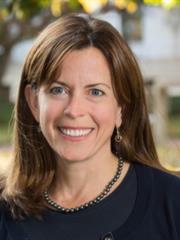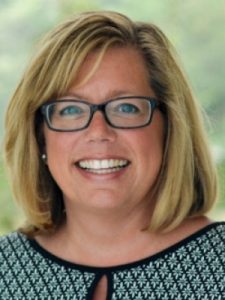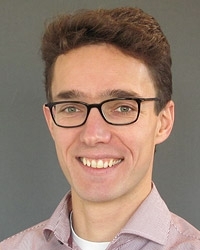SYMPOSIUM ON PRINCIPLES OF EFFECTIVE TEACHING

How to achieve high quality learning outcomes
and high levels of student satisfaction in higher education
ABOUT
Principles of effective teaching change over time. In recent years, many new technologies for teaching have become available. Students’ expectations of their studies and the ways in which they engage with information are changing. Also expectations of future employers about the knowledge and skills university graduates should possess are evolving.
These developments require us to reflect on and advance our teaching methods.
Therefore the Faculty of Psychology UW is organizing a symposium on Principles of Effective Teaching for all employees of the University of Warsaw, on Friday June 7 2019, in the Aula im. prof. Jana Baszkiewicza of the Faculty of Political Science and International Studies (the Main Campus).
The main question of the symposium is which principles, methods and techniques university teachers can use to achieve high quality learning outcomes and high levels of student satisfaction.
Using an applied and practical perspective, a number of invited international experts will present and demonstrate evidence-based principles of course design, teaching and learning.
THE SYMPOSIUM IS FREE OF CHARGE!
7th June 2019
the Aula im. prof. Jana Baszkiewicza of the Faculty of Political Science and International Studies (the Main Campus)
Only for UW employees!
PROGRAM
9:00 Opening
Prof. dr. hab Dominika Maison, Dean of the Faculty of Psychology
9:20 Prof. Beth Morling (University of Delaware) and Prof. Melissa Beers (Ohio State University)
Designing an effective course: An approach based on the science of learning in higher education.
What is the difference between teaching-focused college instruction and learning-focused college instruction? At this session, we will introduce several key empirical studies supporting non-lecture based approaches to college instruction that can be used in any discipline. Attendees will directly experience the same evidence-based strategies they might try in their own classes, and then consider how to integrate new teaching and learning activities through a process of backwards course design.
11:00 Coffee break
11:20 Interactive discussion: Can student peer assessment (partially) replace traditional assessment?
12:00 dr. Floris van Blankenstein (University of Leiden)
Assessing student performance: constructing, using and improving methods of testing student knowledge, skills andmcompetences.
“How are we going to be assessed?” is a common question asked by students at the beginning of a course. This shows how much assessment drives their learning. Knowing this, assessment, especially when combined with good feedback to the student, can be used as a powerful learning-tool. For instance, teachers can actively involve students in assessment practices, transforming assessment into learning activities.
During this lecture, you will learn what is the distinction between formative and summative assessment, how assessment relates to teaching and what are quality criteria for good assessment. You will be shown examples of several assessment formats that you can use for both formative and summative assessment. Also, you will be shown several examples of different assessment models that you can use to assess your students.
12:45 Coffee Break
13:05 Interactive discussion: The flipped classroom; can instructional videos replace in-class explanations?
13:45 Dorota Sidor and Monika Galbarczyk (Digital Competence Centre CKC – formerly COME, University of Warsaw)
Easy ways to make use of elements of e-learning for teachers of UW
There are numerous widely held misconceptions surrounding e-learning and its practices which often discourage academic teachers from using this form of education. It is both the scholars and the students who are influenced by common stereotypes like “I will have no contact with my students/ teachers.”, “I am required to have high IT skills.”, and “Knowledge acquisition is effortless.” The discrepancy between expectations such as these and the actual reality has a great impact on people’s assessment of the value and effectiveness of distance learning.
During our presentation we will address common misconceptions about e-learning and guide you along a simple but consistent path showing how you can practically make use of elements of e-learning to enrich and strengthen your teaching.
14:30 Concluding remarks
14:45 Lunch
The interactive discussions will start with two very short opposing views presented by speakers, after which the attendees of the symposium will join in the discussion
THE SPEAKERS

Beth Morling
PhD, Professor of Psychological and Brain Sciences at the University of Delaware, US
Professor Morling focuses on both teaching in higher education and cultural psychology research. She has authored publications on teaching as well as a handbook on research methods in Psychology. She coordinates teacher trainings at the University of Delaware, speaks regularly at meetings of professional associations for teaching in higher education. She has been decorated as a lecturer, being designated the Delaware State Professor of the Year 2014.

Melissa Beers
PhD, Program Director at The Ohio State University, US
Professor Beers’ research focuses on effective teaching practices. She fulfills a leading role in the American Psychological Association on topics related to teaching Psychology. She is active as a trainer of teachers and a regular speaker at professional meetings organized on teaching in higher education. She has received multiple teaching awards.

Floris van Blankenstein
PhD, educational expert at the University of Leiden, the Netherlands
Dr. van Blankenstein conducts research and publishes on student learning, in particular activational learning – he completed his PhD on the effects of Problem Based Learning on student knowledge acquisition. He is a professional trainer on topics related to assessment methods.

Dorota Sidor
officer responsible for development of digital didactics and schooling, Digital Competence Centre (CKC – formerly COME), University of Warsaw
Ms. Sidor’s main interests include quality assessment of e-learning and dissemination of digital tools for teaching and learning at higher education institutions. She is responsible for developing digital competences training programmes at the University of Warsaw and coordinates university-wide e-learning projects for students.

Monika Galbarczyk
methodology specialist, Digital Competence Centre (CKC – formerly COME), University of Warsaw
Ms. Galbarczyk is an instructional designer, focused on language courses and training of academic teachers. Her interests include: types and modalities of online students, e-teacher’s roles and online classroom management. She is also an active English language lecturer.
Please complete the registration form >>
Only for UW employees!

